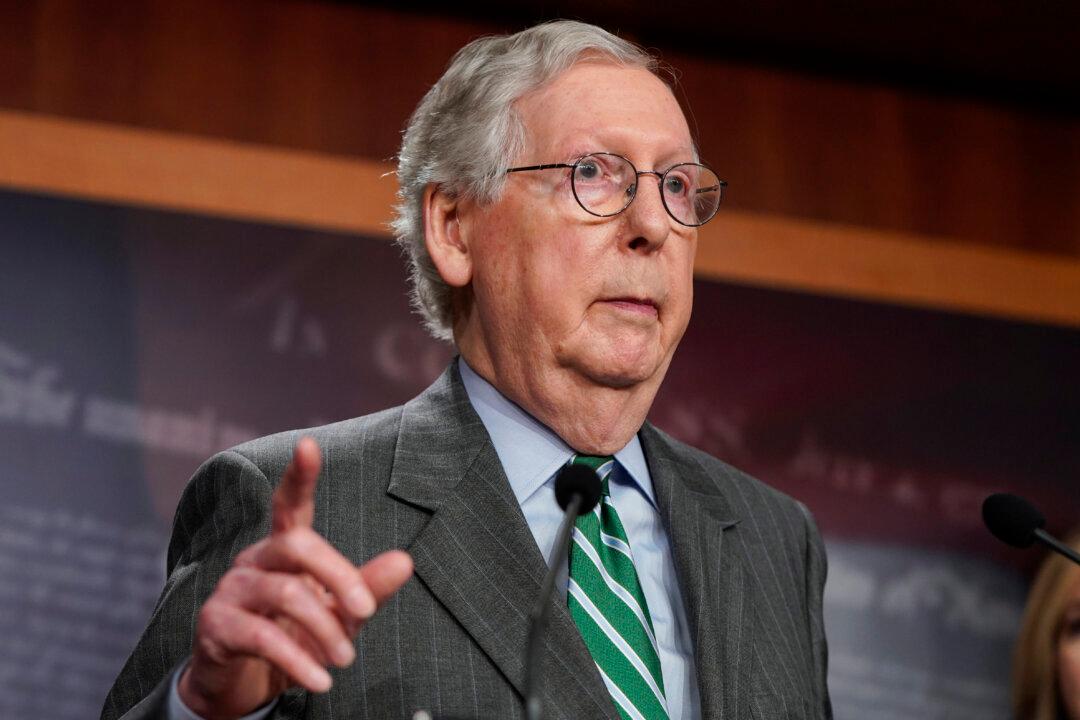Senate Republican Leader Mitch McConnell (R-Ky.) on Thursday said he believes all Republicans will oppose Sen. Joe Manchin’s (D-W.Va.) “compromise” on the Democratic party’s election-related bill that has been dubbed by House Speaker Nancy Pelosi (D-Calif.) and other top Democrats as the “For the People Act.”
McConnell in a statement pushed back against Manchin’s slimmed-down elections compromise, saying that it still retains the partisan bill’s “rotten core.”





